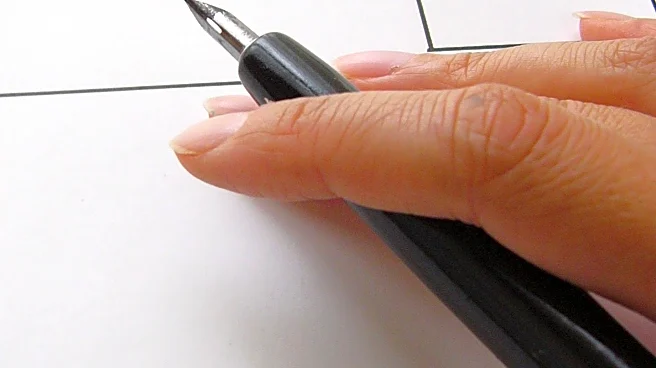What is the story about?
What's Happening?
The use of hyphens in writing has seen a shift in editorial practices, particularly influenced by changes in the Associated Press Stylebook. Historically, hyphens were used liberally to clarify compound modifiers, but recent guidelines suggest using them only to prevent confusion. This has led to a reluctance among writers and editors to use multiple hyphens, potentially leading to ambiguous phrasing. Examples include terms like 'anti-child trafficking celebrity,' which can be misinterpreted without proper hyphenation. The article discusses the importance of hyphens in ensuring clarity and precision in writing.
Why It's Important?
The evolution in hyphen usage reflects broader changes in editorial standards and practices, impacting how information is conveyed in written media. Proper hyphenation is crucial for maintaining clarity, especially in complex or technical writing. The shift away from using multiple hyphens can lead to misunderstandings, affecting the reader's comprehension and the accuracy of the information presented. This change in style guidelines may influence educational approaches to teaching grammar and writing, as well as the expectations of readers and writers in professional settings.
Beyond the Headlines
The reluctance to use hyphens may have broader implications for language and communication, potentially affecting how nuanced ideas are expressed in written form. As editorial standards evolve, there may be a need for increased emphasis on grammar education to ensure that writers can effectively navigate these changes. Additionally, the shift may reflect a cultural trend towards simplifying language, which could impact the richness and diversity of written expression.














